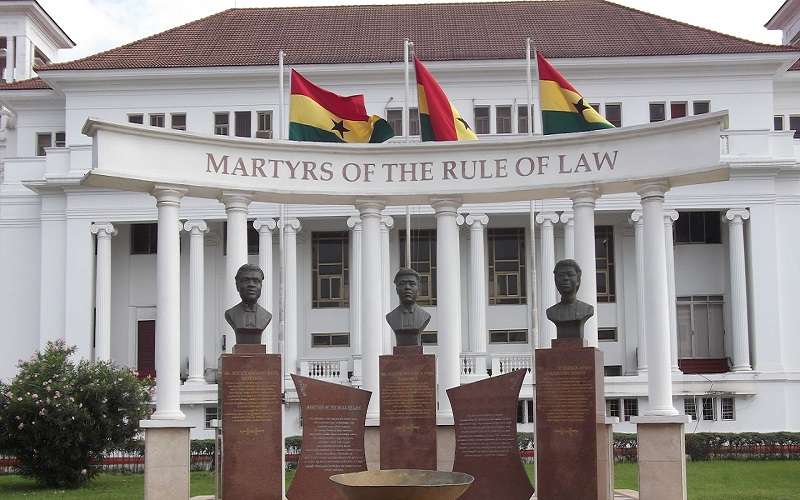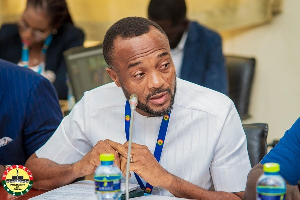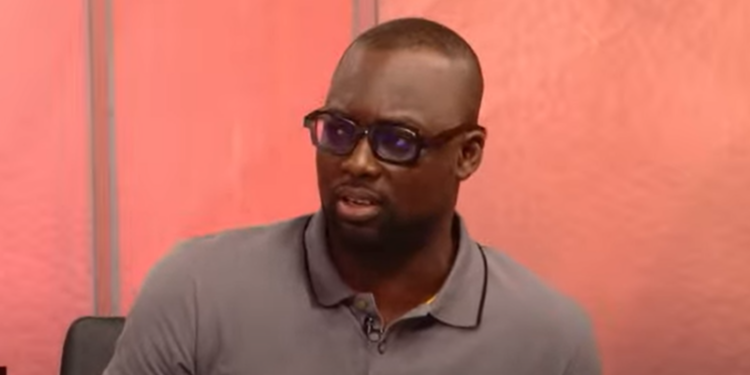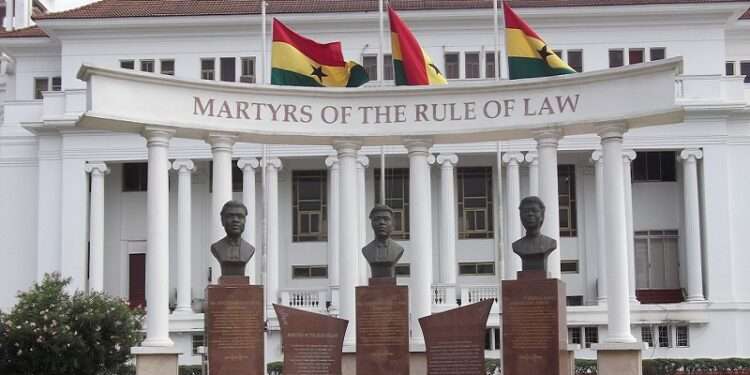Amid calls to protect judicial independence, Ghana’s democracy faces pressure not only from political actors who test constitutional limits but also from internal threats within its own institutions.
According to legal expert and Democracy and Development Fellow at CDD-Ghana, Prof. Stephen Kwaku Asare, the judiciary, often seen as the last line of defense for constitutional democracy, is not immune to threats from within.
In a clarion call that demands national attention, Prof. Asare argued that judicial independence must be protected not only from political overreach but also from the unchecked authority of “a rogue Chief Justice”.
“An Independent Judiciary Must Be Protected—Even From Within,” he warned, making it clear that internal threats can be just as corrosive as external ones.
To many Ghanaians, judicial independence simply means that the executive arm of government should not interfere in court matters.
Prof. Asare challenged this narrow understanding, pointing out that independence has two dimensions: institutional and decisional.
While institutional independence keeps the judiciary autonomous from the executive and legislature, decisional independence ensures that judges can rule impartially, free from any form of pressure—including from their own leadership.
“Much public discourse on judicial independence rightly focuses on the dangers of executive overreach—presidents who dismiss judges, appoint loyalists, or undermine the courts. These are real and present threats, rooted in our painful constitutional history.”
Prof. Stephen Kwaku Asare
However, he warned of a subtler, often ignored threat: the overreach of a Chief Justice who centralizes power and manipulates the judicial process. Such conduct, he argued, is not just an administrative misstep—it is a constitutional breach.

According to Prof. Asare, a Chief Justice can single-handedly compromise judicial independence through several disturbing means. One such method is by manipulating the Judicial Appointments Process.
“A CJ who bypasses the constitutional framework and engages in private negotiations with the President to elevate their preferred candidates to the Supreme Court violates the principle of separation of powers.”
Prof. Stephen Kwaku Asare
This conduct, he added, breeds loyalty to individuals rather than institutions, undermining meritocracy and demoralizing the bench.
The impact? Competent judges sidelined, resentment bred, and confidence in the judiciary shaken.
Power To Be Checked Internally
Furthermore, Prof. Asare highlighted a troubling trend in the judiciary—the strategic selection of panel members by the Chief Justice.
He explained that when a Chief Justice consistently assembles panels made up of preferred judges, it can undermine the integrity of case outcomes.
The situation becomes even more concerning when panel reshuffles or interference occur after hearings have taken place, raising serious questions about judicial independence and fairness.

Such actions, he warned, risk turning the courts into mere extensions of the Chief Justice’s personal leanings—an alarming prospect for any functioning democracy.
He also pointed to unconstitutional directives as another form of internal sabotage. “A CJ who disregards this framework and issues directives unilaterally erodes the rule of law from within the very institution sworn to uphold it.”
However, perhaps the most insidious tactic is the strategic use of punitive transfers and case reassignments. When judges are reassigned or transferred for failing to toe the Chief Justice’s line, it sends a chilling message: personal independence comes at a professional cost.
Prof. Asare did not mince words about the dangers of suppressing dissent within the judiciary.
“A judiciary thrives on open deliberation and diverse viewpoints. When a CJ cultivates a culture of fear, stifles criticism, or silences dissenting voices within the judiciary, the institution becomes less a temple of justice and more a court of orthodoxy.”
Prof. Stephen Kwaku Asare
He added that a Chief Justice who weakens peer review mechanisms or sidelines judicial councils undermines the internal systems of accountability meant to guard against abuse of power.
He emphasized that such conduct represents more than just procedural missteps—they are fundamental breaches of constitutional values. If ignored or left unaddressed, these actions risk setting a dangerous precedent.
Without accountability, future Chief Justices may view them not as warnings but as benchmarks, potentially repeating or even escalating these practices under the guise of precedent.
Accountability Urged Amid Calls for Judicial Independence
Accordingly, Prof. Asare called for firm accountability mechanisms, even at the highest levels of the judiciary.

He argued that holding a Chief Justice to account does not undermine judicial independence; instead, it safeguards the institution from internal abuse, strengthens public trust, and upholds the integrity of the legal system.
He also challenged the idea that the Chief Justice should be shielded from public examination or constitutional checks, describing such a stance as fundamentally at odds with democratic principles.
“The position of Chief Justice is not a fiefdom, and the judiciary is not a court of personal loyalty. A rogue CJ is as dangerous as an overreaching President. Both must be confronted with equal resolve.”
Prof. Stephen Kwaku Asare
In a final appeal, Prof. Asare called for faith in the constitutional petition process, one designed to provide a structured and impartial inquiry into alleged misconduct.
“Our framers, in their wisdom, created a constitutional mechanism to hold powerful officeholders—including the Chief Justice—accountable. They entrusted this responsibility to citizens, empowering them to initiate petitions when they believe these officials have breached the public trust or violated their constitutional duties.”
Prof. Stephen Kwaku Asare
He maintained that the petitions are neither baseless nor impulsive but are firmly anchored in due process and existing legal frameworks.
He warned that appeals for intervention by traditional rulers, religious leaders, or informal backchannel negotiations are not only inappropriate but also undermine constitutional governance.
Allowing such interference, he argued, distorts the intentions of the framers and erodes the rule of law. At its core, judicial independence cannot exist where internal authority goes unchecked.
For Ghana’s democracy to endure, it must be defended not only from political overreach by presidents or parliaments but also from judicial insiders who seek to manipulate the Constitution for personal or partisan ends.
READ ALSO: Iran, US Hold Second Round Of Nuclear Talks





















